
YOUNG ENTREPRENEURSHIP AWARD 2018

YOUNG ENTREPRENEURSHIP AWARD 2018
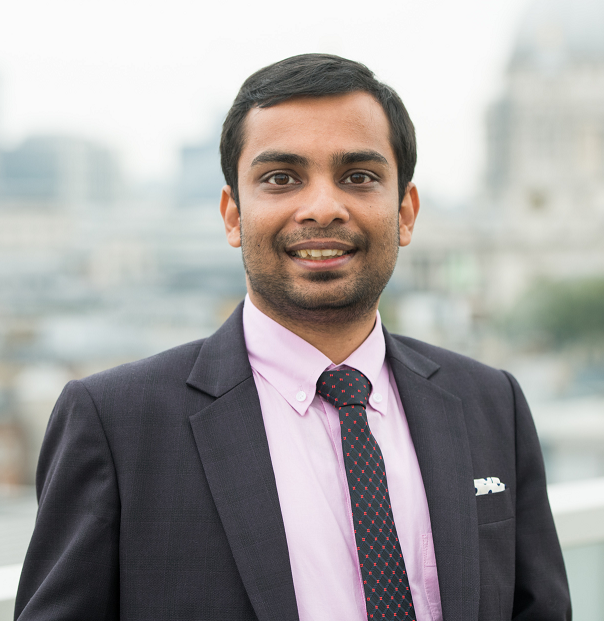 Mr. Ankit Agarwal, Founder and President, Kanpur Flowercycling Pvt. Ltd., India
Mr. Ankit Agarwal, Founder and President, Kanpur Flowercycling Pvt. Ltd., India
“HelpUsGreen®”
India, people customarily donate flowers to temples and mosques as a symbol of devotion. The donated flowers reach eight million tons per year, and the most of them are discarded into the River Ganges, thus causing great environmental problem (they contain toxic chemicals such as pesticides and herbicides). Mr. Ankit Agarwal founded Kanpur Flowercycling Pvt. Ltd to collect and convert the floral waste into proprietary products such as Florafoam®, a biodegradable Styrofoam like material, incense sticks and fertilizers. They have filed six patents for their proprietary products. They hire poor women to process the waste thus providing them stable employment. Now they collect 8.7 tons of wastes flowers per day from 268 temples and mosques in Uttar Pradesh. Since they started the project in 2015, they have collected a total amount of ten thousand tons of wasted flowers and treated one ton of chemical pesticides hiring 1,260 women and helping 119 children go to school. Currently, they have 29 employees and 73 women leaders for processing the waste. Their sales are US$90,000 in 2016, and US$220,000 with 27% earnings in 2017. They expect US$600,000 of sales for 2018, and to operate in 5 local areas in 2019.The Takeda Foundation highly evaluates his achievements and efforts to convert wasted flowers from temples and mosques into useful products on a business basis and at the same time to prevent pollution in the River Ganges, and gives him the Best Entrepreneur Award.
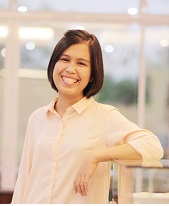 Ms. Dalareich Polot, CEO, Ginto Fine Chocolate Corporation, the Philippines
Ms. Dalareich Polot, CEO, Ginto Fine Chocolate Corporation, the Philippines
“Bean to Bar Chocolates in the Island of the Chocolate Hills”
Ms. Dalareich Polot grew up in a family that ran a business of making a cacao liquor called “tablea” on Bohol Island in the Philippines. The family business generated a meager income which barely served a family of seven. In 2014, she was fortunate to receive scholarship to study bean to bar chocolate production at Ghent University in Belgium. Upon returning from Belgium, she helped her family found a company, Dalareich Chocolate House, where they manufacture tablea and high end chocolate. On Bohol Island, each family owns old cacao trees planted in Spanish colonial times, and Ms. Dalareich Polot started a project,”Ginto Chocolate”, that aims to produce bean to bar chocolate with local
cacao beans by rehabilitating old cacao trees on Bohol Island. Bean to bar chocolate has variety of fragrances depending on the season. Bohol Island has a unique touring spot called “Chocolate Hills”, and she now promotes island tourism by combining bean to bar chocolate with the geographical features of the island. The Takeda Foundation highly evaluates her unique project and gives her the Selection Committee Special Award.
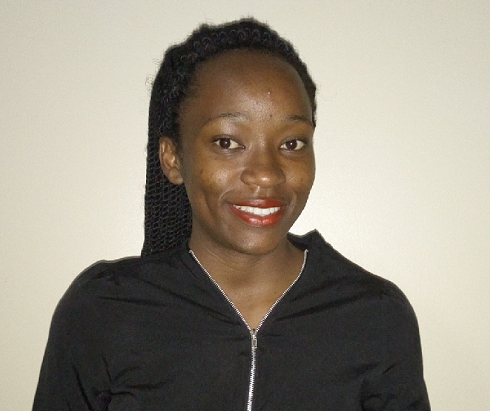 Dr. Nabuuma Shamim Kaliisa, Founder, Community Dental and Reproductive Health, Uganda
Dr. Nabuuma Shamim Kaliisa, Founder, Community Dental and Reproductive Health, Uganda
“Cervical Cancer Screening for All”
In Uganda, inadequate access to effective early screening for cervical cancer leads to the high morbidity and mortality caused by the disease. There are not enough hospitals and clinics even in the cities, and people have limited opportunities for health checks. The situation is worse for women in rural areas, where they can hardly obtain health information and medical checking. Dr. Nabuuma Shamim Kaliisa opened the Community Dental and Reproductive Health Clinic in Kampala, the capital of Uganda, in 2016, and decided to provide cervical cancer checking for rural women by sending her team with medical examination equipment. They visit rural areas by van in response to calls from various women’s groups who have limited access to medical institutions, or by identifying specific women’s groups who need medical checking. Dr. Nabuuma Shamim Kaliisa maintains a low examination price, and introduces a loan payment system so that many women can take cervical cancer screening. When the team finds an early stage cancer, they provide initial treatment. Dr. Nabuuma Shamim Kaliisa’s clinic is a collaboration with the Uganda Cancer Center. If they find a late stage cancer, they recommend patients go there for treatment. She offers follow-up service for patients by mobile applications. The Takeda Foundation highly evaluates her efforts, and gives her the Selection Committee Special Award.
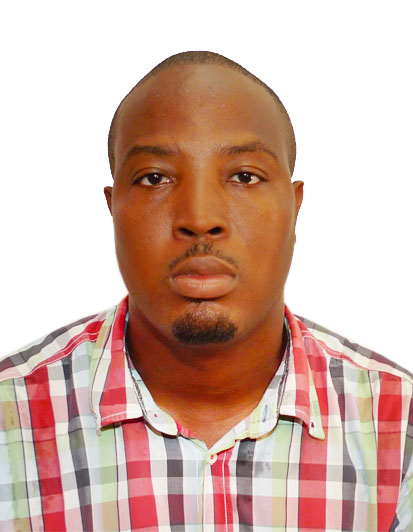 Mr. Elijah Amoo Addo, Founder and CEO, Food for All Mobile Technologies Ltd., Ghana
Mr. Elijah Amoo Addo, Founder and CEO, Food for All Mobile Technologies Ltd., Ghana
“Okumkom Mobile App & Community Discount Stores”
In Ghana, it is said that one out of four children goes to sleep hungry, and 45% of food is lost in the supply chain. Mr. Elijah Amoo Addo started the “Food for All Ghana Program” in 2014, to provide lower income residents in cities, orphans, students, and community people with food at a discounted price or sometimes free by developing a mobile application platform, “Okumkom” (meaning hunger fighter). He also operates stores that offer free or discounted foods. It is reported that students returned to school regularly after the program provided food to a free school in a fishing village. The program monthly delivers US$10,000 worth of food, and provides 12 low income groups with discounted foods. In this program food is sold at a price that tops at 15 % of the purchase price. Sales through the program in 2017 amounted to US$40,000 with US$1,000 profit.
The Takeda Foundation recognizes the fact that the program has been delivering food since 2014. The Foundation highly evaluates Mr. Elijah Amoo Addo’s consistent efforts and gives him the Entrepreneur Award
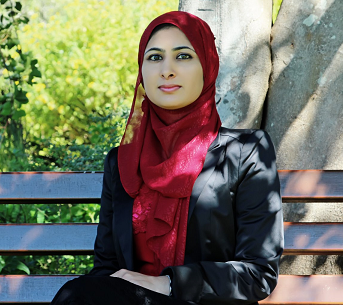 Ms. Naadiya Moosajee, Co-founder, WomEng, South Africa
Ms. Naadiya Moosajee, Co-founder, WomEng, South Africa
“Women in Engineering”
In South Africa, there is a gender prejudice that women are not suited to science or engineering. In many countries the percentage of female scientists and engineers is less than 10%. However, user-friendly products tend to be born when women are involved in their design. In 2006, Ms. Naadiya Moosajee started a project “WomEng” to provide girls from infants to grown-ups with scientific and technological education depending on their age. Textbooks, workbooks and education kits are designed by women from the viewpoint of “for women”. WomEng has 9 branch offices in South Africa and operates in 16 countries. The sales of WomEng were US$210,000 with US$33,000 profit in 2017. They expect increasing sales and profit in 2018. Students started graduating from the program in 2014, and 35 women are now employed by Unilever. Graduates are also employed by other prestigious companies including an electric company, ARM, and an engineering consulting company, Arup. WomEng graduates also have founded four start-ups. The Takeda Foundation highly evaluates their continuous efforts to increase the number of female engineers and gives a co-founder, Ms. Naadiya Moosajee the Entrepreneur Award.
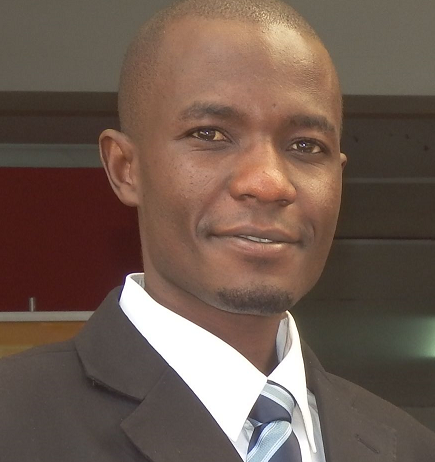 Mr. Venuste Kubwimana, Secretary General, International Transformation Foundation, Kenya
Mr. Venuste Kubwimana, Secretary General, International Transformation Foundation, Kenya
“A Water Kiosk at School”
In rural villages of Kenya, it’s the children’s job to bring back water from far away wells and rivers, which is a great burden for them. In 2013, Mr. Venuste Kubwimana and the International Transformation members started a business of supplying water by setting a water kiosk at a school and selling water to local people at 3 to 5 yen per 20 liters. The school makes a profit by selling water at the Kiosk, and with the profit the school can maintain its hygienic infrastructure without depending on public subsidies. With a water kiosk at the school, the school attendance rate is also improved. They bring clean water from the public water system by installing a pipeline from the public water system to the school. They use high quality water supply equipment made by “Join The Pipe. Organization”. The equipment includes auto-stop taps, drip taps, refillable water bottles, and Jerry carry karts with which children can carry clean water back to their homes. The initial investment cost is 360,000 yen and can be paid off in two years. They have already set kiosks at 11 schools and areas. All water kiosks are constantly working, and making a significant contribution to the improvement of quality of life in the communities. They are setting up two more kiosks in Kenya in 2018, and one in Rwanda. The Takeda Foundation recognizes that a water kiosk at school not only provides clean water to local people but also promotes business education in school. The Foundation highly evaluates his efforts and entrepreneurship and gives the Entrepreneurship Award.